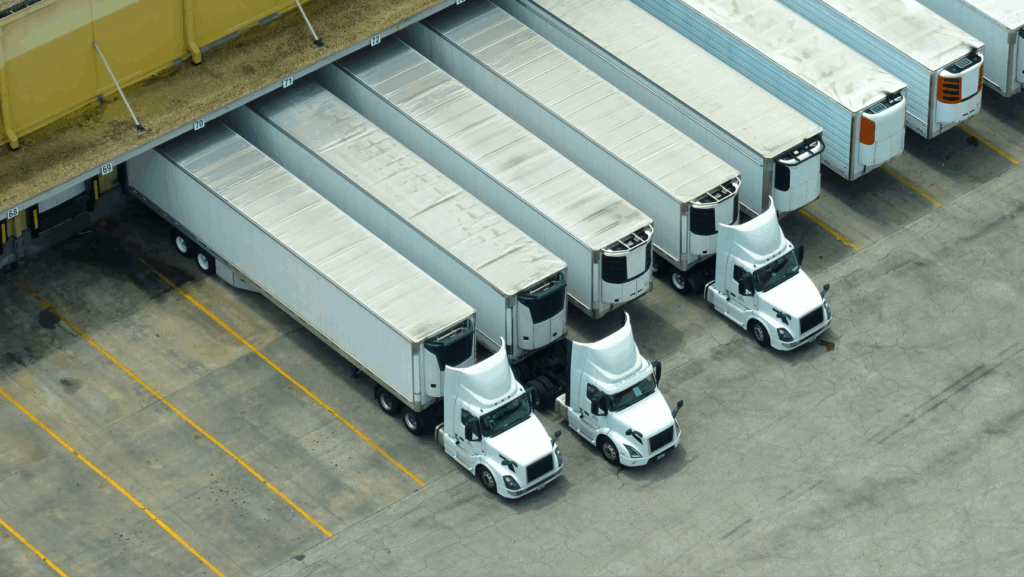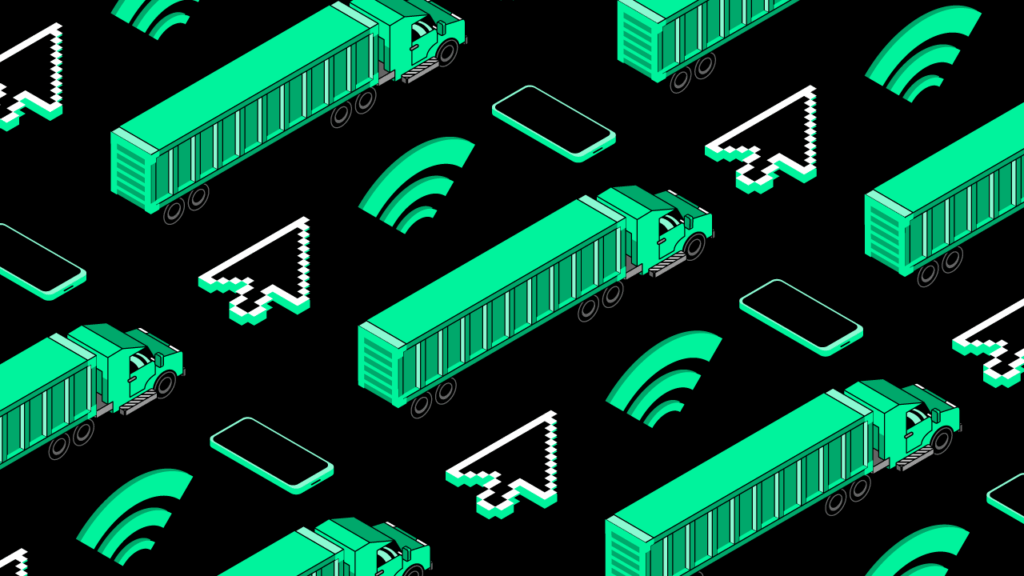The Role of Digital Freight Matching Platforms in Modern Logistics
Logistics and transportation are integral to the smooth operation of global supply chains. In recent years, the logistics industry has seen significant technological advancements that are transforming the way freight is managed and moved. Digital Freight Matching Platforms (DFMPs) are a key innovation that is reshaping the logistics landscape. These platforms connect shippers with available carriers in real time, providing a more efficient, transparent, and cost-effective method for managing freight transportation.

This article dives into the significance of Digital Freight Matching Platforms in modern logistics, their workings, the benefits they offer, and the challenges they present.
Visit Postalparcel for more logistics solutions.
What are Digital Freight Matching Platforms?
Digital Freight Matching Platforms are online systems that utilize algorithms, big data, and real-time digital tools to match freight shipments with available carriers. These platforms create an online marketplace where shippers can easily find carriers to move their goods, while carriers can access available shipments in need of transportation.
DFMPs reduce inefficiencies such as empty miles, increase the speed of freight matching, and ensure that both shippers and carriers operate more efficiently. They leverage technology to automate processes that traditionally involved manual work, communication, and negotiations.
Key Features of Digital Freight Matching Platforms
- Real-Time Availability: DFMPs provide up-to-date information on the availability of carriers and shipments. This allows shippers to instantly find a carrier that suits their needs and vice versa.
- Automated Matching: Using algorithms, the platform automatically matches freight with carriers that meet the criteria for the shipment, such as location, route, vehicle capacity, and timing.
- Enhanced Visibility: Both shippers and carriers have full visibility into the status of the shipment, including location tracking and delivery times, all in real time.
- Cost Efficiency: By optimizing routes, reducing empty miles, and increasing load capacity, these platforms help lower operational costs for both shippers and carriers.
How Do Digital Freight Matching Platforms Work?
Digital Freight Matching Platforms operate by simplifying and streamlining the way freight and carriers connect. Here’s an expanded explanation of how they work:
1. Shippers Post Loads
Shippers enter details about the freight they need to transport into the platform. This includes information like the type of goods, size, weight, origin, destination, and required delivery time. Advanced algorithms process these details to identify suitable carriers.
2. Carrier Search

Once the load is posted, the platform’s search engine identifies available carriers within a defined geographical area or region. It filters the carriers based on their current location, available capacity, and the type of freight they are equipped to handle. This ensures that only the most suitable options are presented to the shipper.
3. Automated Matching
The platform’s matching algorithm takes into account multiple factors, such as carrier’s fleet capabilities, proximity to the shipment, pricing, and carrier reviews. Once the system identifies a match, both the shipper and carrier are notified about the proposed partnership. This minimizes the time spent manually contacting multiple carriers.
4. Real-Time Tracking
Shippers and carriers can track the shipment throughout its journey, from pickup to delivery. Real-time tracking provides updates on estimated delivery times, allowing both parties to make adjustments in case of delays or other unforeseen events. This level of visibility ensures better decision-making and customer satisfaction.
5. Payment and Settlement
In most cases, DFMPs also handle the financial transactions. The platform ensures that payments are processed securely and that both shippers and carriers are compensated fairly. This removes the need for intermediary payments and ensures timely settlements.
Benefits of Digital Freight Matching Platforms
1. Increased Efficiency
DFMPs drastically reduce the time it takes for shippers and carriers to find each other and complete transactions. Traditional methods required multiple phone calls, emails, or manual outreach to arrange freight, but with DFMPs, the matching process is automated and instantaneous. This frees up time for both parties to focus on other important tasks.

- For Shippers: Shippers can instantly find available carriers that meet their needs without spending hours researching and negotiating.
- For Carriers: Carriers gain access to a steady stream of shipments, enabling them to operate their fleets more effectively without worrying about empty miles or unfilled loads.
2. Cost Savings
One of the most significant advantages of DFMPs is cost reduction. These platforms reduce overhead costs for shippers and carriers by automating processes, reducing manual labor, and eliminating intermediaries. Furthermore, the platform optimizes routes and consolidates shipments to reduce fuel consumption and minimize empty miles. This helps both parties save on operational costs.
- Reduced Deadhead Miles: Carriers can find loads for both inbound and outbound trips, reducing empty miles.
- Lower Transaction Costs: Direct connections between shippers and carriers eliminate brokerage fees and other intermediary costs.
3. Improved Transparency and Visibility
Transparency is a major advantage for both shippers and carriers. With DFMPs, both parties have access to real-time information about the status of shipments. Shippers can track their freight from pick-up to delivery, while carriers are kept informed about their load details and delivery schedules.
- Tracking: Shippers and carriers are provided with location data and real-time updates, so they always know where the shipment is and when it will arrive.
- Automatic Notifications: If there are delays or issues, both parties receive immediate alerts, enabling them to make proactive decisions.
4. Scalability
Digital Freight Matching Platforms offer scalability as businesses grow. For shippers, this means they can find more carriers to handle a larger volume of shipments. For carriers, DFMPs provide a larger pool of shippers to choose from, increasing their business potential.

- For Shippers: The platform can accommodate higher volumes of freight as business operations expand.
- For Carriers: Carriers can access more freight opportunities without the need for traditional marketing efforts.
5. Sustainability
In an era focused on sustainability, DFMPs contribute significantly by reducing fuel consumption. By optimizing routes and reducing unnecessary transportation, the platforms help minimize carbon emissions, supporting greener logistics solutions.
- Fewer Empty Miles: Optimizing routes means fewer empty miles for carriers, which leads to reduced fuel consumption.
- Energy Efficient Operations: More efficient fleet management and logistics planning reduce the overall environmental footprint of freight transportation.
Challenges and Considerations
While Digital Freight Matching Platforms offer tremendous benefits, there are several challenges and considerations for businesses adopting these technologies:
1. Data Security
As platforms manage sensitive data, such as shipment details, payment information, and route plans, ensuring data security is paramount. Businesses must rely on DFMPs that have robust cybersecurity protocols in place to protect this data.
2. Technology Adoption
For businesses that are not accustomed to using digital tools, the transition to DFMPs can be a hurdle. Companies must invest in the necessary training and infrastructure to ensure that employees are familiar with the platform and can fully leverage its features.
3. Market Competition

With an increasing number of DFMPs entering the market, shippers and carriers must carefully evaluate each platform. Factors such as pricing models, platform features, and user experience will determine which platform best suits their needs.
The Future of Digital Freight Matching Platforms
The future of DFMPs looks promising, with technology set to further enhance their capabilities. Emerging technologies such as artificial intelligence (AI), machine learning (ML), and the Internet of Things (IoT) are likely to revolutionize the industry even more.
1. AI-Powered Predictive Capabilities
Artificial intelligence can improve the prediction of freight demand and supply, helping shippers plan their shipments better and allowing carriers to optimize their fleet scheduling in real time. AI-driven systems can forecast trends in demand and better align shipments with available carriers.
2. IoT Integration
The integration of IoT will allow for better real-time monitoring of shipments, offering updates on more than just location. IoT sensors can monitor the temperature, humidity, and condition of sensitive goods, ensuring higher levels of transparency and security.
3. Blockchain for Greater Transparency

Blockchain can offer an additional layer of security and transparency to DFMPs by creating an immutable record of transactions. This would not only reduce the chances of fraud but also streamline payment processes, making transactions more secure and traceable.
4. Autonomous Vehicles and Drones
The future may also see DFMPs integrated with autonomous vehicles and drones. These technologies could further automate the freight process, reducing the reliance on human drivers and allowing for faster, more efficient delivery.
Digital Freight Matching Platforms are changing the way logistics and freight transportation operate. By offering benefits such as efficiency, cost savings, scalability, and sustainability, these platforms are transforming global supply chains. As technology continues to evolve, DFMPs will become even more intelligent, enabling smarter, faster, and more cost-effective logistics solutions.
Industry Insights
news via inbox
Nulla turp dis cursus. Integer liberos euismod pretium faucibua







